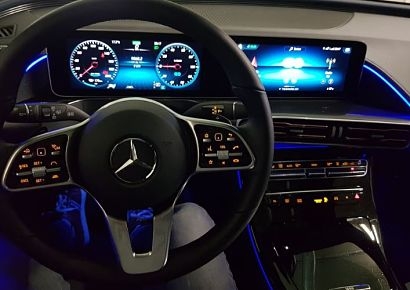
The work, which is reported in Nature Communications, was carried out in collaboration with the University of Southampton and the Royal Institute of Technology, Sweden. The invention is an important development for all-electric vehicles and more-electric aircraft which require electronics with integrated data storage that can operate in extreme temperatures with high energy efficiency.
As transistor leakage current increases with temperature, nanoelectromechanical relays have emerged as a promising alternative to transistors for such applications. However, until now, a reliable and scalable non-volatile relay that retains its state when powered off, to implement memory, has not been demonstrated.
“Part of the challenge is the way electromechanical relays operate; when actuated, a beam anchored at one end moves under an electrostatic force” said Dr Dinesh Pamunuwa, who leads a group that carries out research in the field of Microelectronics at the University of Bristol and is the lead investigator. “As the beam moves, the airgap between the actuation electrode and beam rapidly reduces while the capacitance increases. At a critical voltage called the pull-in voltage, the electrostatic force becomes much greater than the opposing spring force and the beam snaps in. This inherent electromechanical pull-in instability makes precise control of the moving beam, critical for non-volatile operation, very difficult.”
Now, though, Dr Pamunuwa and the team have demonstrated a rotational relay that maintains a constant airgap as the beam moves, eliminating this electromechanical pull-in instability. Using this relay, they have succeeded in demonstrating the first high-temperature non-volatile nanoelectromechanical relay operation, at 200 °C.
Dr. Pamunuwa added that the discovery is a truly exciting development as the need to develop technology that reduces our dependency on fossil fuels increases and that it is a significant step forward in developing electronics for all-electric vehicles and energy-efficient more-electric aircraft, as well as for creating zero-standby power intelligent nodes for the IoT.
“Electronics built from nano relays instead of transistors can work at much higher temperatures while also having zero standby power” Dr. Pamunuwa said. “Any digital electronic system needs logic and memory, and this relay makes it easier to build relay-based memory that retains the stored state when powered off, by using stiction. Maintaining a constant airgap as the relay switches allows very precise electrostatic control, and greatly improves reliability.”
The relays were designed by Dr. Sunil Rana and nanoscale prototypes were fabricated by Dr. Joao Mouro, both senior postdoctoral researchers in the Microelectronics group at the University of Bristol. Dr. Jamie Reynolds, a senior postdoctoral researcher at the University of Southampton carried out contact material deposition, testing and characterisation under Professor Harold Chong’s supervision. Microscale prototypes were fabricated by Dr. Simon Bleiker of the Royal Institute of Technology under the supervision of Professor Frank Niklaus.
For additional information:

